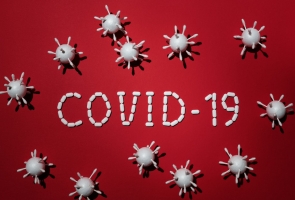Do you ever get angry when you see things on social media, particularly about medical conditions, symptoms, and related issues, that are flat-out wrong or misrepresented? If you are a responsible blogger, I can only imagine the answer to be a resounding “yes.”
For good or for bad, people turn to social media for information more than any other source. That leaves the door wide open for a floodgate of misinformation. While the major platforms are making strides to protect the public from false information, only a small number of posts that contain erroneous information ever get flagged.
This leaves it up to ethical bloggers and marketers to assume the high ground in this area. While it’s always tempting to go along with statements and information that will garner the most clicks, your integrity and believability are vital to your success. Since most monetized blogs are promoted through social media, this message is timely.
We have all seen the damage that the propagation of misinformation can do. It clouds people’s judgment and leaves them unable to know for sure who to trust. The simple fact of the matter is that most readers aren’t going to do their own research. They will trust sources they like and take the information presented by sources they deem trustworthy as gospel, no matter how implausible or questionable the statements made in the content may be. As far as they’re concerned, they’ve already got a believable source, so why investigate further.
This is why it’s so important that what you say in your blog is accurate and verifiable. It’s our responsibility to do the research and present information that is correct and provide the proofs necessary to validate our claims. I can’t think of an area in which this is more consistently necessary than health and medicine. For good or for bad, there are people out there that will trust you with their very lives without giving the first thought to seeking proof for themselves about what you say.
If these things matter to you, it’s time to step up your fact-checking game before you publish anything. It eliminates the possibility of misleading people and saves you the trouble of having to admit when you’re wrong. Today, I’d like to offer you a shortlist of ways you can ensure that your facts are accurate and, in so doing, position your blog as an actual credible authority. If you’re neglecting any of these things, it’s time to think about them and take action toward incorporating them into your blogging strategy.
Consider Wiki Sites as Start Points Only
Even though so many noteworthy sources agree that Wiki sites are loaded with inaccuracies, people in general still look at them like they do encyclopedias. They see information with cited sources and decide the information is accurate. As responsible medical blogging professionals, we can’t afford to take this approach.
I’ll go on record stating that Wiki sites do typically contain valuable, sound information. However, they’re still open platforms that are vulnerable to the inclusion of erroneous information that can go unchecked and unchallenged for years. Consider the information you find on Wiki sites, but don’t let your research begin and end with them.
Find at Least 3 Corroborating Sources
There should be a paper trail of agreeing documents and statements tied to every piece of information you convey. Before including any information or claim in a blog post, track down at least three sources that agree with your statements. Don’t engage in confirmation bias. Research everything objectively and be willing to discover your understanding of any given subject to be in error.
Always provide links to your sources in either bibliographic or hyperlinked form. The latter is more helpful for SEO, but the former also shows how much work you’ve done to ensure accuracy. Hint: There’s nothing wrong with using both.
Lastly, don’t look to other blogs. Look to sources like independent studies, peer-reviewed documentation, and sources that don’t have a stake in selling anything as authorities. Trusted medical, scientific, and nonprofit sources are best.
Never Trust Social Media
This is the last place you should be going to find information about anything. Like I said, sometimes errors are caught, they usually are not. Think of it in terms of the number of people who speed versus the number of people who get cited for speeding. The frequency and numbers are, at best, the same in the realm of adequately fact-checked information on social media. At worst, they’re far more disproportionate.
However, I do recommend considering social media posts as sources for corroborating information. Just don’t try to present something you read on Twitter as fact. If what you read on social media jibes with your own research, consider it a gauge of accuracy, not specific proof.
Actively Search for Opposing Views
Debunking is a necessary element of the scientific method. Even when a hypothesis looks to be correct, an effort is always made to discredit and disprove. It’s an important safeguard against letting erroneous information and findings into the equation. As a medical content blogging professional, this is no less true.
I mentioned confirmation bias. This is the polar opposite. Always be just skeptical enough of your own claims that you are not only willing but also determined to debunk your own claims if contrary proofs to your held position are out there.
Research Any and All ‘Experts’ Thoroughly
Be careful who you trust as an authority because your credibility is riding on theirs. If you tout one source’s opinions on every subject and they later prove errant, it can, and likely will, destroy your reputation along with theirs. It isn’t enough to research claims. You have to research the person, body, or entity making them with the same level of skepticism.
As medical copywriting professionals, our company is always careful to follow these guidelines, and we insist on this level of fact-checking from our staff and freelance medical copywriters. If you have any doubts about your ability to adequately fact-check (or just don’t have the time to keep up with your blog), contact us. Our reputation at Beez is built on integrity, and we’ll do all we can to protect and elevate yours.




